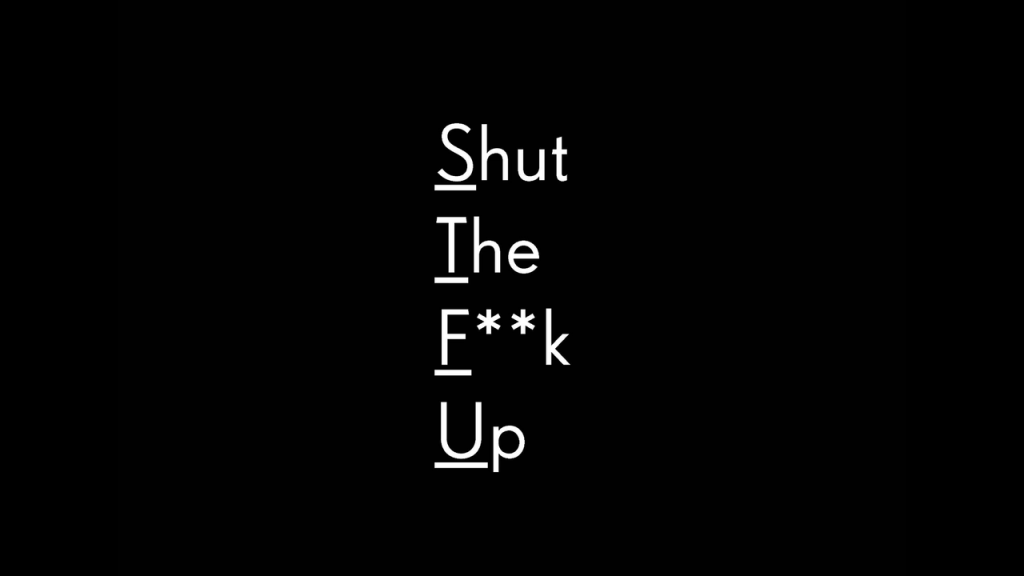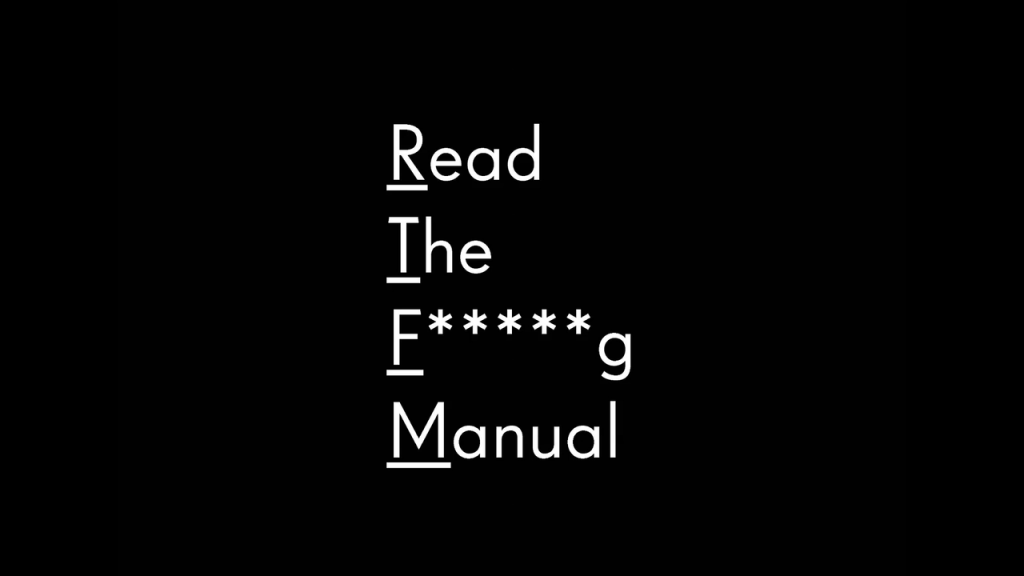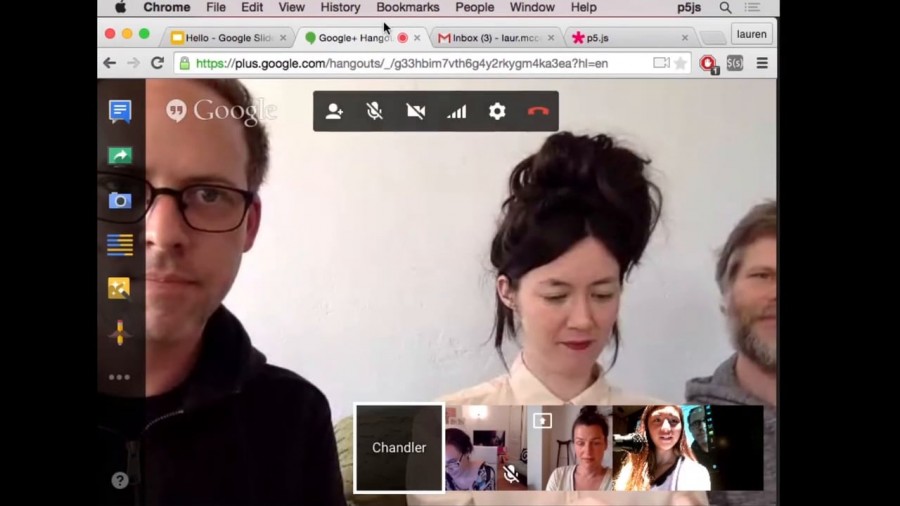Hello everyone. I wanted to give a talk on how to be an ally but I can’t really give that talk, so this is not a talk on how to be an ally. It’s a talk about trying to become one.
For those of you unaware, an ally is someone who wants to support the struggles of a marginalized group that they are not a part of. [So?] feels compelled for whatever set of reasons, but they’re not in that group, and that puts one in a particular position when trying to participate in politics that group.

My background is this. Well, I wasn’t in this band, but this band had a profound effect on me and really shaped a lot of my young, budding politics when I was a pre-teen. And those politics kind of stuck with me for the rest of my life. So a lot of that life [inaudible] try to figure out how to unpack this and make it into an ethics that I can live every day.

Here are a few things that I’ve learned about being an ally over the years. This is the first and the most important. This particular point was put to me very well (not directed at me, I have to say) by a woman that I work with now in the Design Media Arts MFA program who likes to talk about this as one of her opinions about working with white people; she’s a woman of color. What I think is really important about this comment is that she finds it very frustrating that it often alienates people, pushes people away. People get very angry. But what’s important here is that it’s not a metaphor in the sense that it doesn’t mean “go away” when you say that. It means just stop talking. Don’t give up, don’t decide that you don’t care, don’t think that you’re not welcome, just stop moving your lips. Stop making sounds, and start listening. Because that’s really the best way to contribute.
A great YouTube video on how to be an ally that I recommend you search YouTube for these. There’s an analogy made between trying to help your friend build a house when you’ve never built a house before, and you just show up and start hammering things because you don’t really know what you’re doing. So don’t do that. Just listen.
I and mine do not convince by arguments, similes, rhymes; We convince by out presence.
Walt Whitman, “Song of the Open Road”
This particular point always makes me think of this Whitman quote about convincing by presence, and really the importance of being present as an ally, but not particularly trying to contribute your own voice. Being present and listening puts you in a particular position where [you can?] think of the privilege that you have being put in the hands of the marginalized group that you want to support just by being there, just by listening.
Another important point, of course, is don’t get defensive, no matter what, ever. It’s really not about you at all. If you go on the Internet (and Tumblr in particular is kind of bad about this), you’ll frequently encounter a lot of people who are skeptical of your commitments. But before you speak up, before you react, before you do anything, just ask if the skepticism that you’re facing is deserved. Not even deserved of you in particular, but perhaps in general. If this is a reasonable position for someone to take. And then ask if what you’re about to do is going to support the cause that you believe in or if it really has nothing to do with it, because in this context that is really all that matters.

Another important point here is this, which is to read the manual. I think it could be interesting in this context to take this term away from the brogrammers who like to throw it around on forums, and try to think about how this particular phrase may be thrown back when dealing with issues of difference. In this context, it’s about doing the work, it’s about finding text, blogs, videos, lectures, the vines, the Tumblrs, reading them and thinking about how they apply to your life. Reading blog posts and going for a walk. Thinking about situations you find yourself in, things that you take for granted, and thinking about ways that the thoughts of others can destabilize those.
Of course the most important is to think about privilege, and really think about it closely. Consider it at arms’ length but consider ways that you have privilege, how you use it, what you do with it, and what it means if you are a person with privilege to try to be an ally. How that privilege is interfering with your supporting the cause you believe in.
Then of course, something so obvious, but it seems so often missed is simply that pronouns are powerful. When you’re giving lectures and you’re trying to teach a programming concept and you’re talking about a programmer who develops something, just use [she?]. It’s quite simple and it has an amazing effect. I’ve done it for years with my students, and many of them come up to me and talk to me about it later because it’s such a small thing but it shifts the way the conversation happens and brings other personalities into the forum. Language really does matter. There was a backlash of course with political correctness, but we’re kind of past that now, we’re far past that now. [largely inaudible sentence]
Moving from here we’ve got all of these anti’s. Anti-racism, anti-sexism, anti-capitalism, [inaudible] an exhaustive list of some of the potential positions that’ve come up just today in this panel. Something that’s important to me personally is that these particular concerns don’t necessarily affect the larger structure that we find ourselves in. We have to consider and not be content with just critiquing the status quo. There’s this term from the political philosopher Mark Fisher called capitalist realism. What capitalist realism is is the notion that our world has been structured by capitalism that we are no longer able to imagine ourselves out of it. This crops up a lot in encouraging [women?] and people of color to learn to program so that they can very quickly [go to?] Silicon Valley and [inaudible] make money and contribute.
Those politics are not my politics, and I think it’s important for people to consider where they stand on this issue and consider how we can possibly think these terms [anti-racism, anti-sexism, anti-capitalism] into these terms [post-racism, post-sexism, post-capitalism], and try to consider what happens when we get through racism, we get through sexism, when we overcome capitalism. What kind of world will we find ourselves in, and try to put a lot of thinking into imagining what that world would be like.
One temporary school of thought that’s trying to do that is called accelerationism, closely related to Luxury Communism, or sometimes more entertainingly called Fully Automated Luxury Communism. The idea here is that we’re quickly facing a future which will be post-scarcity. We will have automation of so many tasks that we need to start considering whether the jobs that are [invented?] away through automation, whether those people are just going to starve, what we’re going to do with the surplus population that has nowhere to work [because they?] work to live.
The opportunity that something like accelerationism offers is we can take [hold?] of the capitalist machinery and try to accelerate technological progress and put it to the uses of humans and environments and people. So we can actually make a world designed for living in. So I think that we’re in a particular moment here where bringing in a marginalized group into this project, programming and technology in particular is going to be, as Phoenix mentioned, vitally important to this future, to deciding what kind of world we’re going to [be in?].
I suggest looking into accelerationism. One of the interesting points there is the thought that capitalism goes through phases where you have innovation, but then innovation gets capped because there’s a long period of trying to monetize [instead of?] inventing, and that innovation is no longer [quite?] to the human purpose. So we’re at an opportunity [inaudible] where we can do that.
One final thought from all of this is to always try harder.
Thank you.
Further Reference
Overview page at the Studio for Creative Inquiry’s web site.
